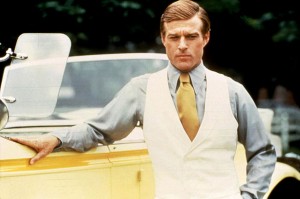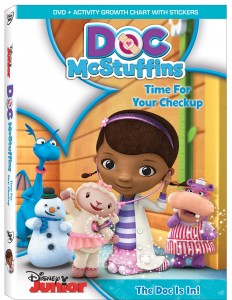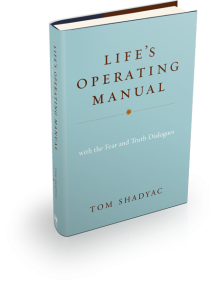Football star-turned actor Brian Bosworth spoke to me about his new role in Revelation Road: The Beginning of the End , the second in an end of days series from Pure Flix Entertainment. He spoke to me about how making the movie was a critical part of his own faith journey.
, the second in an end of days series from Pure Flix Entertainment. He spoke to me about how making the movie was a critical part of his own faith journey.
http://www.youtube.com/watch?v=RQ_KNZ4ADGQ
Let’s start by having you describe your character, a biker named Hawg.
Not a guy you want to bring home to mama.
I think that’s fair. I’d add angry to that too. I felt a lot of anger coming off of Hawg.
The second one describes in great detail why I’m so vengeful and angry. And it was important that we were able to get that out because I was in fear what when I read the script originally that there wasn’t enough definition behind the purpose behind Hawg and his vengefulness towards God. And the way I wanted to play it I needed to have that purpose and what I did was I substituted my own anger and my grudge with God for the last 25 years into to something that I think people have the ability to identify with because it happens every day in our lives. When people that we love are taken from us and we don’t have control over it.
It feels like the easier choice to go with the anger rather than be honest with ourselves?
It’s a human choice. And it’s the test and as I’ve learned and as I’ve gone through the process and now that I’ve been saved and released all that anger and I’m starting to study the Word and understand the history of what the lesson is. It’s a lesson from day one. In time and it resonates. It doesn’t matter where you are and what era the same challenges occur for humans 5000 years ago to today to whatever time that we do have left. It’s just a matter of how you deal with those challenges and the instructions are clearly written in that Book. You just accept that fact that you don’t have control of what happens in your life. Only God has control of that. It’s a temporary thing that we are experiencing in this thing that we call life. And there are things that happen that are beyond or control. And of course we are going to get angry. I know if my child was taken from me unexpectedly and without reason or cause, the first thing to do is to be angry. But there’s instructions on how to deal with that and know that your purpose. Now I understand I don’t own every soul. Just because they are my kids, they are not my souls. I don’t own them. I’m just their guardian and I have to give them instructions that I am given so that I can pass on the ability that one they’ll make that choice independently that they will fill their heart up and be saved themselves but I can’t save them.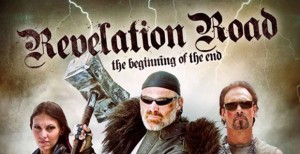
Just like nobody could save me. And I had to make that choice. Life is hard. Life is tough. And it was not easy and the thing that I replaced in the movie of my character’s wife being killed was my career. When I lost my career I felt that was God breaking his promise to me because I made a promise to him when I was young. Give me this because I need this in my life and yet without purpose at least in my mind he took that away from me. It was more clear now than it was then. It’s hard to deal with things.
At the moment.
At the moment it is.
In the case of being a professional athlete you kind of feel like you make a bargain because you give up so much to achieve that level of skill and you’re entitled to get that success in return.
Well I think entitled that’s one of the words that I might not use unless you act entitled. And I think you know when I go back and describe my change and my demeanor when I was in college. When I give testimony about it. To me there’s a direct correlation to what you’re blessed with and what you feel you are entitled to. And I felt like I was blessed with a God given ability to play football and that was when I was Brian Bosworth. But then when I turned into the Bos and the Bos took me over I allowed things to happen in my life then I started to follow a different path. That’s when the entitlement so to use that’s really when God stepped in and said you know what you’re not entitled to anything. You’re blessed with everything but you’re not entitled to any of it.
Isn’t that the difference between pride versus humility? When you feel blessed you have a sense of humility when you feel entitled you have a sense of pride.
There’s no question, yeah. The way I describe it is I took my training wheels of my relationship with God off and I said, “I got it from here, thank you for the push.” That’s my pride saying that I don’t need you anymore. And lack of humility to me is the mistake that we all make when success is abundant in our life and we have the audacity to think that we’ve done that on our own. That’s just all our doing. And unfortunately is really the key ingredient to our undoing.
What do you want people to think about as they walk out of this movie? What do you want them to say to each other?
It’s not what they say to each other it’s when they go back home and they look at themselves in the mirror. When I did a screening in Oklahoma, I said, “If this event were to happen today or tomorrow or next week, are you ready to go?” You can’t fake God out. That’s one thing. We can fake each other out. And I’ve done that before and I’ve seen that happen. You can talk about it in a lot of different ways. But the one thing you can’t do is you can’t lie to yourself because your heart knows the truth. When you do something wrong your heart inherently knows “I’m doing this and I know I shouldn’t.” No matter what it is. No matter if it’s small or big. Your heart tells you whether it’s right or wrong. And that’s God’s way of talking to you. So when you look in the mirror and say, “Am I a Christian? Am I walking the walk? Am I doing it the way Jesus would do it?” Only you can answer that question so when the rapture comes — and it is coming — are you going to be able to say with 100 percent certainty when you raise your hand, “I’m going; I have a ticket” or “I’m not sure.” You can fix that but you have to do that now and don’t wait until tomorrow or think you have until tomorrow because God is the only one who has our clock.
For me the most moving part of the film was when the Jesus figure says, “Have you asked?”
Yeah, it’s the most important question. For me in my journey I chose to turn my back. It wasn’t a question of whether I believed that God was there. I felt that he was there and either he or I or we broke a promise and therefore I am choosing to not engage him. I already know the answer to the question of where my heart is. If I ask the answer is going to be no because my eyes aren’t ready to see, my ears aren’t ready to hear and my heart isn’t ready to receive him. Not only until I get to the bottom of where I am to where I have to be on my knees begging and asking. I can’t do this alone. And I know without Your help I can’t get home. Are you ever going to be able to ask that question and then hear that answer?
Do you feel that some of the same discipline and focus that you brought to being an athlete was helpful to you in becoming an actor?
It’s the only thing I know how to draw from. I wasn’t trained as an actor and I never really wanted to be an actor, to be honest with you. That’s part of my anger that I had to let go. All those movies that I ever did back in the past was somebody else vision, somebody else’s vehicle, somebody else’s choice and I had to take ownership and allow somebody else to choose a path in my life. Should I then take credit for it? So I consider this really my first movie because it’s the first movie I sat down and I read and even though I was reluctant I looked at it and it spoke right to my heart and it said “this is exactly who you are today.” And it was a godsend because it was like I know that I am this dark vengeful angry man because I choose to be. Hopefully through the process it will stir up something and it will bring me back to me knees and make me ask, “Do you want to still be that person” because you can be or you can choose not to be. But only you can decide that. But yeah from a discipline standpoint I only know how to work in the way in which I was trained. And I go through a routine disciplined and when I know I’m working I turn and shut everything else out. So every day you are working is like game day. You go and you prepare and you discover and every play is not exactly the way it is drawn up on the board. You have to be open to allow the play to develop. And then you have to be instinctual about your responses to that. You have to be real you can’t fake your way through it. It actually comes from a place that you know is real.
So I’m getting the feeling from talking to you that the very process of playing this character was a part of your journey.
It’s the quintessential part of my faith. I wasn’t even really acting in this movie. That character was exactly who I was. I didn’t have to draw from anything other than my own anger. And it was the triggering point to find my salvation because if I hadn’t accepted that movie I wouldn’t be standing her today talking about being saved. I would still be standing here angry, mad, and vengeful and not at peace with where I am knowing that the journey I’m on now has an ending point of a place called home.
Do you have a favorite Bible verse?
I have several different bible verses that I love but the one that spoke to me the most is Isaiah. It spoke to me on the day that I got saved. And I just happened to be reading it. Isaiah 1:18-20 “Come now let’s settle this lord though your sins are like scarlet I will make them white as snow. Although they are red like crimson I will turn them white as wool. If ye be willing and obedient, ye shall eat the good of the land: But if ye refuse and rebel, ye shall be devoured with the sword.”
It’s exactly the last 27 years of my life.
And it’s right there. Until I was ready to listen and hear it those were just words and they could have been in Mandarin it wouldn’t matter. It’s clear. It’s like the picture of your life. It’s like “Wow, that’s it.” It’s exactly what I have chosen to take that path and because I decided not to obey Him he’s taken and devoured everything. But He will turn around and give it all right back to you just like Job. And that is a man who deserves to be angry at God. Here’s a man who has every blessing you could want.
And did nothing wrong.
He was the best subject for Satan to prove man’s faith. He still sits down and says thank you Lord. Even though you take everything away I still love you.
Will you be a part of Part 3?
If we get to do a Part 3, yes. I would like to do it. And you saw at the end I’m just kind of sitting there. We shot that last scene and this is how providential the whole movie was. I told them before I took it I’m getting married on May 5th. You guys are starting this movie on April 2nd. And I know how movies go. There’s going to be run over days. You’re not going to get all your shots. I’m leaving on May 2nd because I got to get my marriage license so if there’s any issues with that I guess I can’t do this movie. And back in that time I was kind of hoping for them to say, “Okay, yeah let’s pass on you.”
They waited til the very last day to do all those stunts and they waited until the last day to get my most emotional scene. That scene isn’t written in the script. David, the producer, and the guy that plays Josh in the movie is aware enough of where I was. The sun was down. We were in the desert and it was dark. And he said, “Let’s stop the rest of the shooting. Brian is leaving tomorrow and we got one shot to get and I know what he has to do to end this scene correctly.” So we never rehearsed it. We didn’t do any dialogue changes. There was no dialogue. I said, “Just roll the camera and I’m just going to let it run.” And it came out at one time. And I was hoping at the end that they would finish it the way they did because it leaves something for the audience to go, “Okay, he has at least let go of his anger, not for his daughter and not for his wife, but he’s let go of the anger for Him.” And when you finally relinquish that and you do it for Him then that’s when your life begins. It at least gives Hawg a moment of redemption. I have told people this whether you walk the walk or think you’re the most righteous person in the world and you read the scripture that doesn’t give you an automatic ticket to heaven and just because you may have done the most abominable things known to man and you might be the worst human being on this planet it doesn’t mean you don’t have a day of redemption.
Turn around and ask. And that’s all that I did that day. I stopped and I asked.
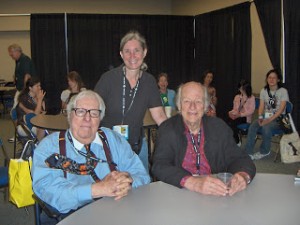 One of the greatest thrills of my professional life was the chance to talk to one of the towering figures of film history, Ray Harryhausen, the special effects genius to transformed movie-making in the years before digital technology. Today, we mourn his passing, less than a year after the passing of his lifelong friend, Ray Bradbury, who joined us in the interview.
One of the greatest thrills of my professional life was the chance to talk to one of the towering figures of film history, Ray Harryhausen, the special effects genius to transformed movie-making in the years before digital technology. Today, we mourn his passing, less than a year after the passing of his lifelong friend, Ray Bradbury, who joined us in the interview.

